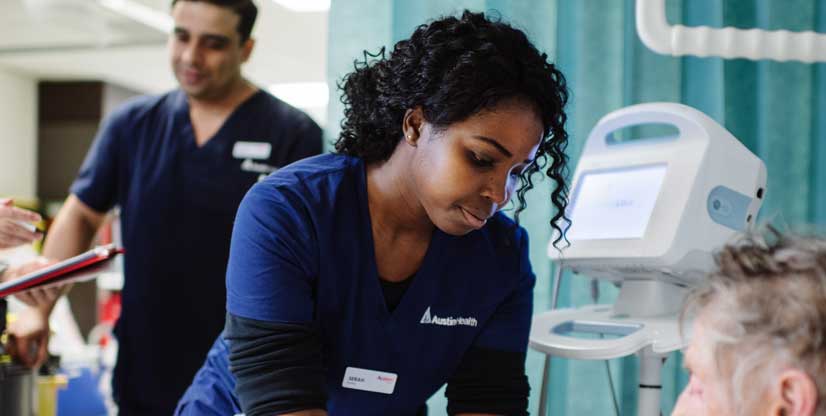Clinics & services
Kidney transplant
Kidney transplant referrals
- Home
- Clinics & services
- Medical problems
- Kidney transplant
- Kidney transplant referrals
On this page
Refer your patient
Doctors can refer their patient to this service in several ways:
- Pre and post transplant assessment - contact us
- Direct referrals - details are provided below
Refer to Kidney transplant team for a list of our physicians and surgeons.
Contact us to follow up on the status of a referral, seek or provide further information in relation to a referral.
Phone: 03 9496 5685
Kidney transplant workup clinic
This clinic is for individuals with advanced chronic kidney disease, or those already on dialysis, who require workup, assessment, education, and listing for kidney transplantation.
Address referrals to A/Prof John Whitlam.
Include any investigations performed to date, as well as other relevant correspondence.
Post kidney transplant clinic
This clinic provides holistic long-term care to recipients with a functioning kidney transplant.
Address referrals to A/Prof John Whitlam.
For transplant recipients transferring care from another health service, include a summary of the relevant transplant history and latest investigations with the referral.
Living kidney donor clinic
This clinic provides the following services:
- Comprehensive medical and surgical assessment and education of living kidney donor candidates (people wishing to donate a kidney for transplantation)
- Long-term post-transplant monitoring and care of kidney donors to ensure health and wellbeing
Address referrals to Dr Natasha Cook.
For new referrals from general practitioners, it is advised that donor candidates are first discussed with our living donor coordinator to ensure basic suitability prior to attending the clinic.
Renal surgery clinic
This clinic provides the following services:
- Surgical assessment of kidney transplant recipient candidates (people seeking to receive a kidney transplant)
- Management of surgical complications following kidney transplantation
- Evaluation and management of general surgical problems in kidney transplant recipients and people on dialysis
- Establishment and maintenance of peritoneal dialysis access
Address referrals to A/Prof Bulang He.
Contact us
Kidney Transplant Service
Phone: 03 9496 5685
Fax: 03 9496 5123
Email: kidney.transplant@austin.org.au
Location
Level 7, HSB Building
Austin Hospital
145 Studley Road
Heidelberg VIC
Postal address
Kidney Transplant Service
Department of Nephrology
Austin Health
PO Box 5555
Heidelberg Victoria 3084


